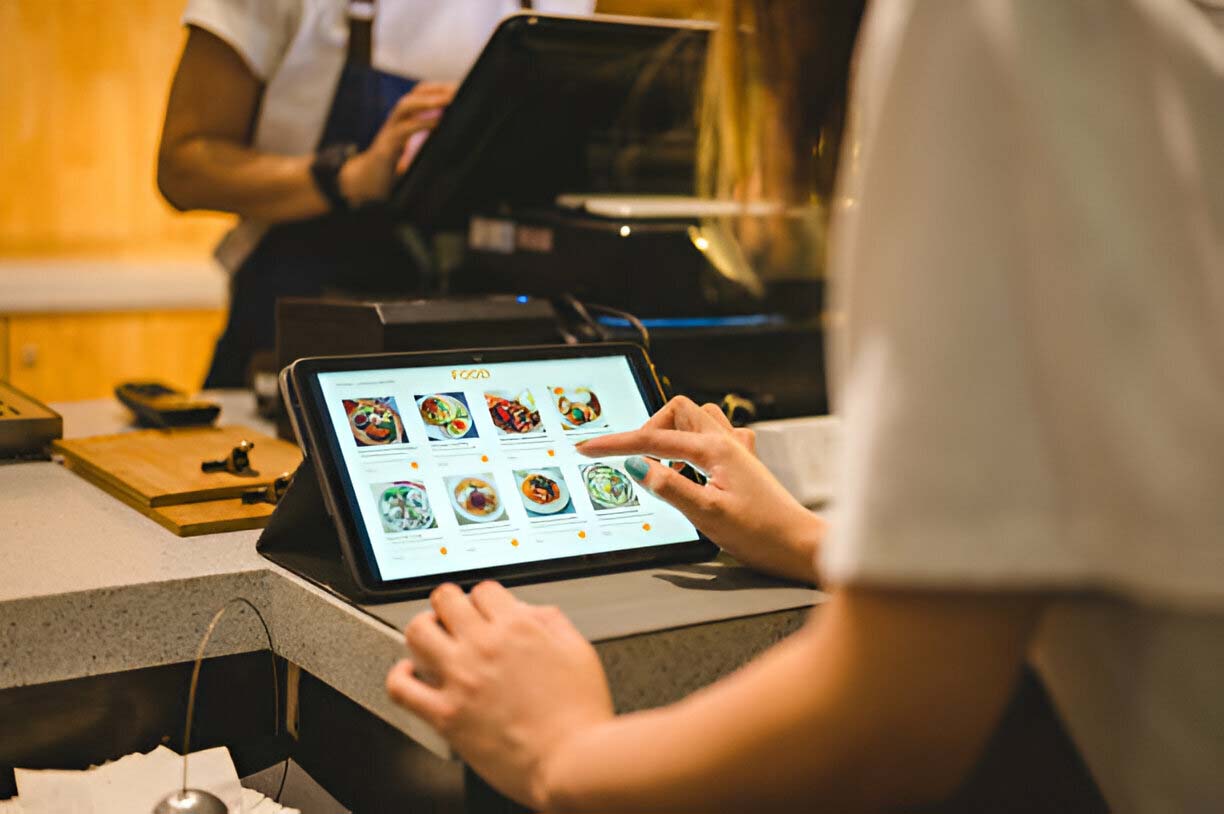Recently, the broad implementation of new technologies has dramatically reshaped traditional practices across multiple sectors, increasing operational efficiency and elevating service quality. The restaurant industry is a prominent example of this technological transformation, influenced by upgrades that enhance everything from kitchen operations to guest interactions.
This change has not only heightened productivity but also transformed how restaurants engage with their patrons. Research indicates that by 2025, restaurant managers anticipate automating more than 50% of their internal tasks, highlighting the growing significance of technology in this field.
Exploring these innovations in restaurant technologies reveals their broad impact, enhancing more than just everyday operations and enriching the overall dining experience. This direction is set to revolutionise the culinary industry, where the integration of technology with culinary expertise promises a new chapter of culinary enjoyment.

AI and Automation in the Kitchen
Artificial intelligence and automation are transforming restaurant kitchens, where precision and efficiency are critical. Within the wider framework of restaurant technology improvements, the concept of a restaurant tech stack is vital. This technology stack includes various integrated systems that handle everything from reservations to complete restaurant management.
Technologies such as POS systems, digital ordering, and customer relationship management platforms are interconnected, ensuring streamlined service and optimised staff and inventory management through real-time data. This comprehensive approach allows restaurants to maintain quality and consistency, showcasing the industry’s commitment to adopting advanced solutions to meet changing demands.
Online Reservations and Management Platforms
Making a reservation is now more straightforward with online systems embedded in restaurant websites and apps, providing instant confirmations and reminders. Back-end management systems enable optimal seating and staffing adjustments based on live reservation data. This setup not only reduces no-shows but also helps anticipate peak times, improving resource allocation.
Additionally, these platforms can integrate customer feedback and dining preferences, allowing for a more tailored dining experience. They also facilitate more effective communication between the kitchen and front-of-house staff, ensuring that service runs smoothly.
Digital Menus and Ordering Systems
The era of old, physical menus is fading as more establishments offer digital menus on tables through tablets or smartphones using QR codes. These interactive menus suggest dishes based on customers’ previous choices and preferences, adding a personalised touch without waiter involvement.
This digital transformation makes the ordering process quicker and more accurate, enhancing customer satisfaction and benefiting restaurant owners. Moreover, such systems can update in real time to reflect changes in menu availability or specials of the day. They also offer multilingual options, making them accessible to a broader range of customers.

Mobile Payments and Contactless Transactions
In today’s convenience-driven world, mobile payment and contactless transaction usage have surged, changing how customers settle bills. Customers can now pay effortlessly using their smartphones after a meal, avoiding the hassle of cash or credit cards. This method not only streamlines transactions but also promotes safety and cleanliness by reducing physical contact, thus lowering the risk of germ spread and enhancing the dining environment’s hygiene.
These payment technologies not only offer convenience but also emphasise safety, with built-in security features that protect sensitive financial data and foster diner and restaurant owner confidence.
From a business viewpoint, the advantages of mobile and contactless payments are clear. By adopting these technologies, restaurants can simplify their operations, shorten transaction times, and enhance efficiency. Moreover, the data from these transactions provides insights into customer preferences, allowing for customised service and marketing strategies, thereby increasing customer loyalty and satisfaction.
Virtual and Augmented Reality Encounters
Certain dining establishments are harnessing the power of virtual and augmented reality to craft distinctive culinary adventures that transcend mere sustenance. Through VR, patrons are transported to the very origins of their meals, all from the comfort of their dining table. Augmented reality complements this experience by offering diners a three-dimensional preview of potential dishes, empowering them with enhanced insight for making informed choices.
Sustainable Practices Enhanced by Technology
Technology stands as a cornerstone in advancing sustainability within the culinary landscape. The integration of energy-efficient appliances not only slashes utility expenses but also fosters eco-friendly operations. Moreover, waste reduction systems play a pivotal role in curbing food spoilage, thereby significantly minimising environmental impact. The rise of applications facilitating the sourcing of local and sustainable ingredients signifies a notable shift, enabling eateries to bolster their ecological responsibility while simultaneously championing regional farmers.
Conclusion
Technology is transforming the dining experience in numerous ways. From the efficiency of digital ordering systems to the immersive experiences created by virtual and augmented reality, along with support for green practices through new technologies, the hospitality sector is seeing major changes. These innovations improve restaurant operations and customer experiences, promising an exciting future at the crossroads of technology and hospitality. The continued embrace of these technologies offers promising opportunities for all involved in the sector.








